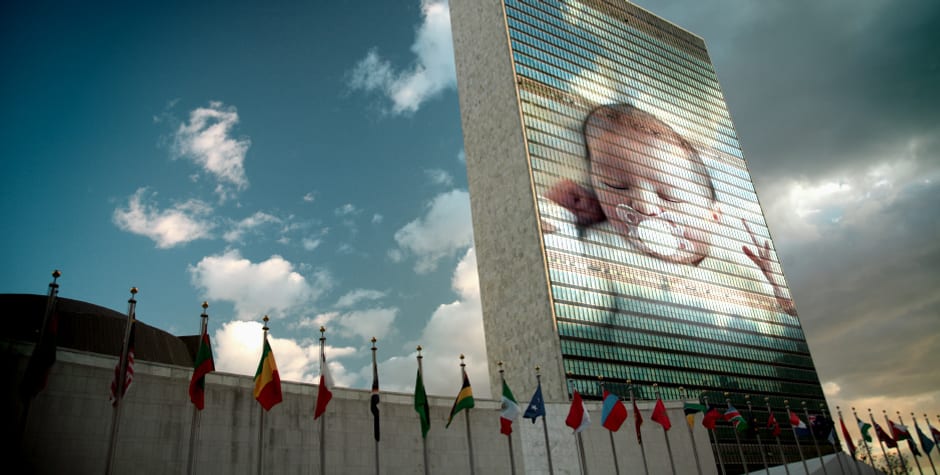Interpretative Declaration – A Way To Combat Abortion Distortion in International Bodies
Contrary to popular belief, abortion is not the worldwide norm. That may be a shock to most of the people reading this, but it is the truth, nonetheless. In fact, a majority of the world has strict limitations on procedures taking the life of a preborn baby. Out of the 193 U.N. Member States, a majority (109) of them have strict limits on abortion: 20 countries prohibit abortion altogether; 42 countries only permit abortion where the mother’s life is at risk; and 47 only allow abortion to preserve the health of the mother. Even in the 67 countries that have varying gestational limits for on-demand abortions, the vast majority of them (52) have a gestational limit of 12 weeks or less. So, the false narrative that the pro-abortion crowd tries to push, that the world is pro-abortion, is completely undermined when actually looking at the facts.
Of course, you would never hear that from international bodies today, including the U.N. They all seem to be on board with continuing the false narrative by undermining State sovereignty and the majority consensus that the life of a preborn baby deserves, and indeed has a right, to be protected. As a matter of fact, since the 1994 Cairo Conference on Population and Development, U.N. Member States have had an affirmative commitment to “reduce the recourse to abortion” and to “take appropriate steps to help women avoid abortion, which in no case should be promoted as a method of family planning.” Yes, you heard that right, in 1994, the U.N. Member States not only recognized the harm of abortion, but also recognized that abortion is not healthcare, and made a commitment to reduce and avoid abortions. And, the Cairo Conference was simply reiterating what other international documents had previously stated for decades.
For instance, the Universal Declaration of Human Rights (UDHR), the cornerstone of all international human rights, states that “recognition of the inherent dignity and of the equal and inalienable rights of all members of the human family is the foundation of freedom, justice and peace in the world,” and that “[e]veryone has the right to life . . . .” Likewise, Article 6 of the International Covenant on Civil and Political Rights (ICCPR) states that “[e]very human being has the inherent right to life. This right shall be protected by law.” The preamble of the United Nations Charter states that “the peoples of the United Nations determined . . . to reaffirm faith in fundamental human rights, in the dignity and worth of the human person . . . .” It is important to note that, while virtually all international treaties contain provisions for the protection and promotion of the right to life, not one contains a “right to abortion.” And yet, the U.N., international courts, and other bodies continue trying to undermine the right to life to which a preborn baby is entitled by grossly distorting the right to life and other human rights to include abortion. This shameful attempt to redefine the right to life, as including a right to abortion, is not only absurd, but completely erroneous.
This abortion distortion is a battle we fight on a daily basis, not only in the United States, but internationally as well. Although the U.S. Supreme Court opinion in Dobbs v. Jackson Women’s Health Organization did get it right – that the U.S. Constitution does not protect a right to abortion – the battle is far from over. Additionally, on the international stage, the Geneva Consensus Declaration (Declaration) was a good start, with the United States sponsoring the Declaration strongly supporting the life of all human beings, with protections beginning from conception through death. Thirty-four Member States signed on to the Declaration reiterating the fact that there is no international right to abortion and reaffirming the needs of a child before and after birth. However, more can be done at the U.N. to protect life.
In order to combat the intentional erosion of protections afforded to life, including that of the preborn, we are proactively advocating for an “Interpretative Declaration” from U.N. Member States. An Interpretative Declaration actually clarifies the meaning or scope of a treaty or certain provisions. Therefore, such a document will clarify the fact that the Member States understand that the pro-life language contained in the international treaties (several mentioned above), to which they have agreed, does indeed include the life of the preborn baby. Therefore, when the pro-abortion crowd, that dominates committees and courts, tries to state otherwise, their inaccurate and biased statements will not be defendable or credible. This will be a great step toward correcting the abortion distortion that continues to run rampant on the world stage.
We will continue to work at the U.N., through our international affiliate the ECLJ, and with world leaders to press for this pro-life Interpretative Declaration.
